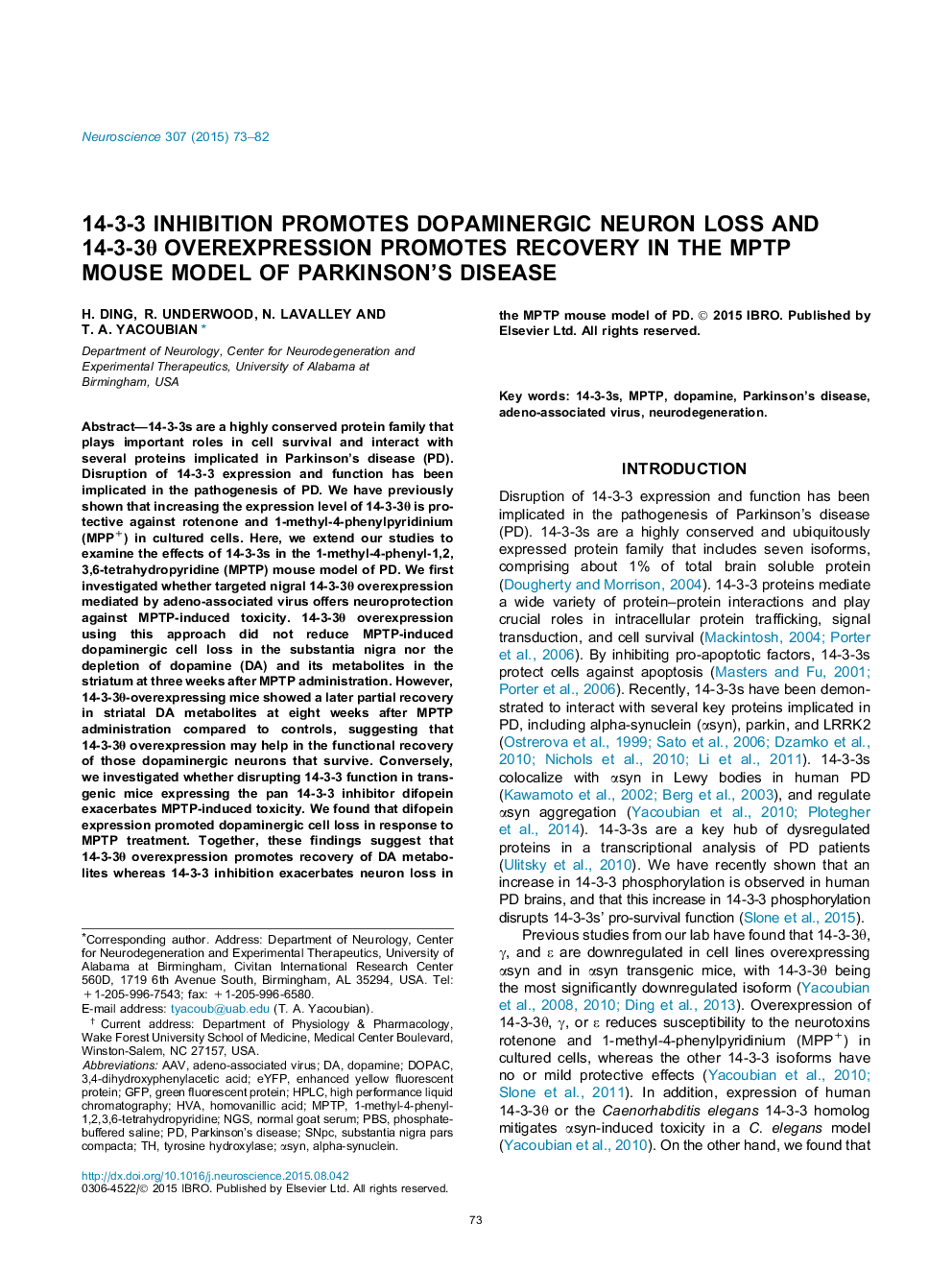| Article ID | Journal | Published Year | Pages | File Type |
|---|---|---|---|---|
| 4337449 | Neuroscience | 2015 | 10 Pages |
•Inhibition of 14-3-3 proteins exacerbates dopamine neuron loss by MPTP in mice.•14-3-3θ overexpression does not prevent dopamine cell loss by MPTP in mice.•14-3-3θ promotes late partial recovery of dopamine metabolites after MPTP treatment.
14-3-3s are a highly conserved protein family that plays important roles in cell survival and interact with several proteins implicated in Parkinson’s disease (PD). Disruption of 14-3-3 expression and function has been implicated in the pathogenesis of PD. We have previously shown that increasing the expression level of 14-3-3θ is protective against rotenone and 1-methyl-4-phenylpyridinium (MPP+) in cultured cells. Here, we extend our studies to examine the effects of 14-3-3s in the 1-methyl-4-phenyl-1,2,3,6-tetrahydropyridine (MPTP) mouse model of PD. We first investigated whether targeted nigral 14-3-3θ overexpression mediated by adeno-associated virus offers neuroprotection against MPTP-induced toxicity. 14-3-3θ overexpression using this approach did not reduce MPTP-induced dopaminergic cell loss in the substantia nigra nor the depletion of dopamine (DA) and its metabolites in the striatum at three weeks after MPTP administration. However, 14-3-3θ-overexpressing mice showed a later partial recovery in striatal DA metabolites at eight weeks after MPTP administration compared to controls, suggesting that 14-3-3θ overexpression may help in the functional recovery of those dopaminergic neurons that survive. Conversely, we investigated whether disrupting 14-3-3 function in transgenic mice expressing the pan 14-3-3 inhibitor difopein exacerbates MPTP-induced toxicity. We found that difopein expression promoted dopaminergic cell loss in response to MPTP treatment. Together, these findings suggest that 14-3-3θ overexpression promotes recovery of DA metabolites whereas 14-3-3 inhibition exacerbates neuron loss in the MPTP mouse model of PD.
